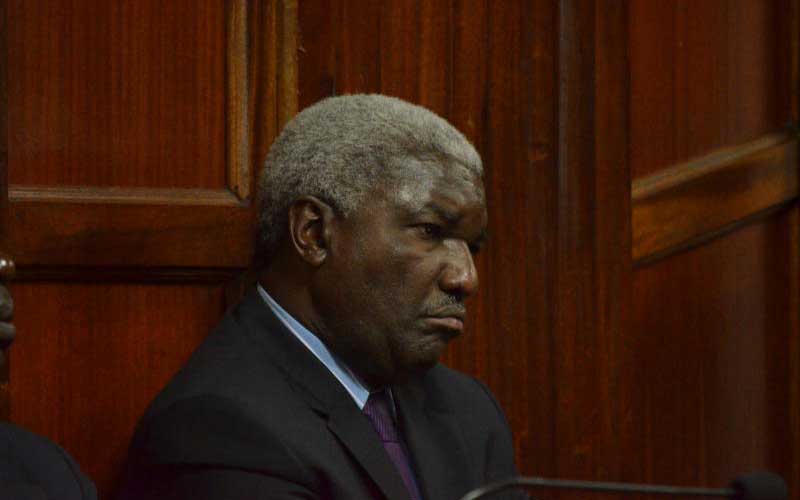×
The Standard e-Paper
Join Thousands Daily

Former Permanent Secretary at the Ministry of Foreign Affairs Thuita Mwangi during a past court session. [File, Standard]
Former Permanent Secretary Thuita Mwangi’s arrest and prosecution over the Sh1.6 billion Tokyo Embassy procurement scandal was not inhuman or degrading, a court has ruled.